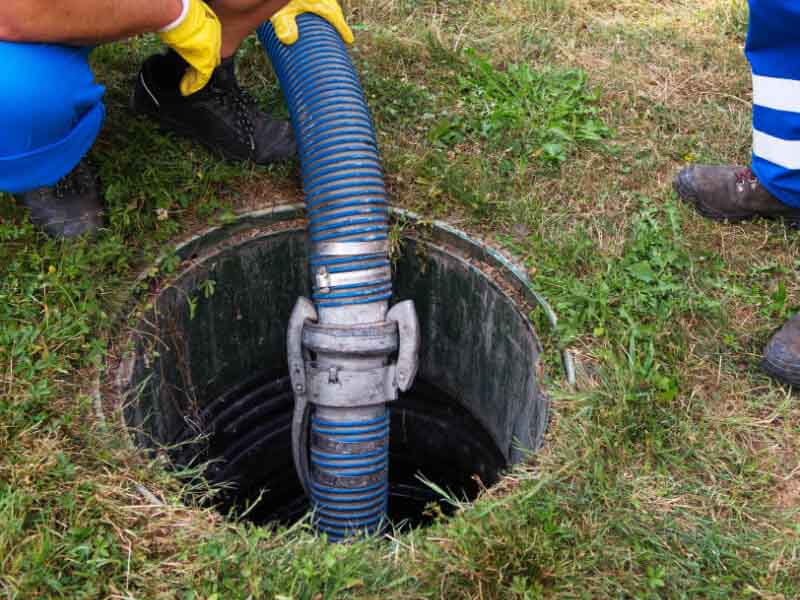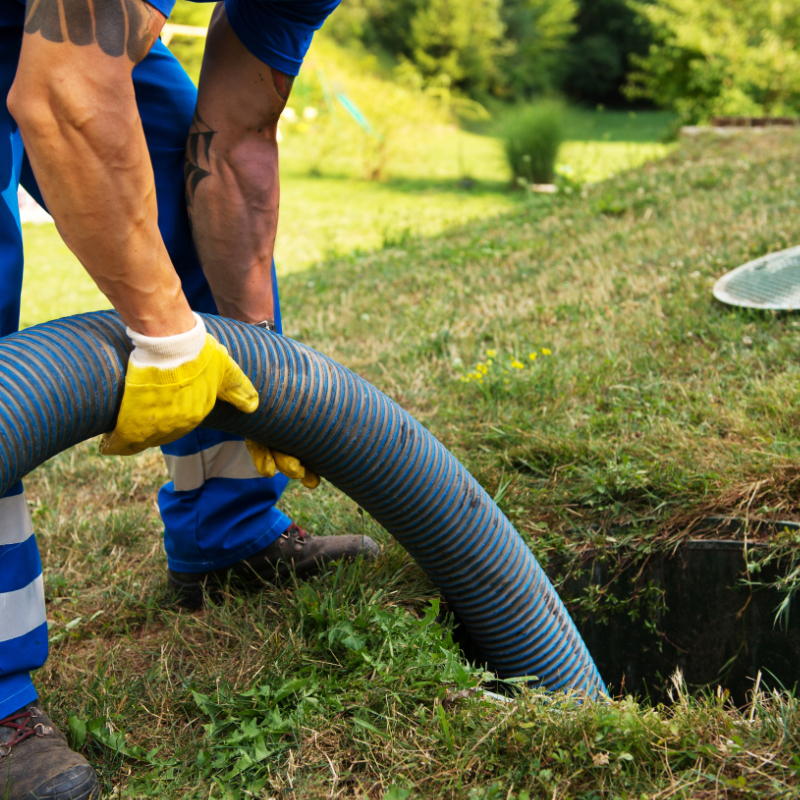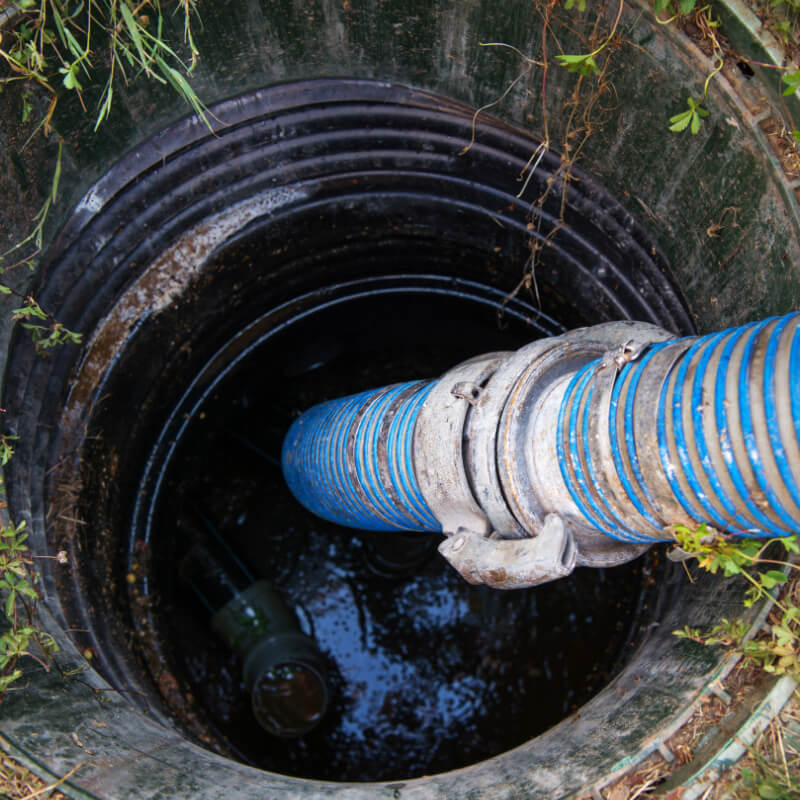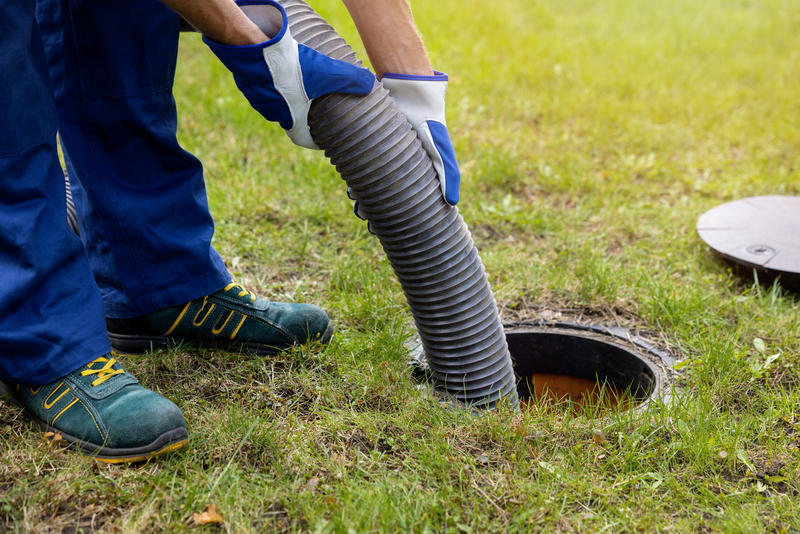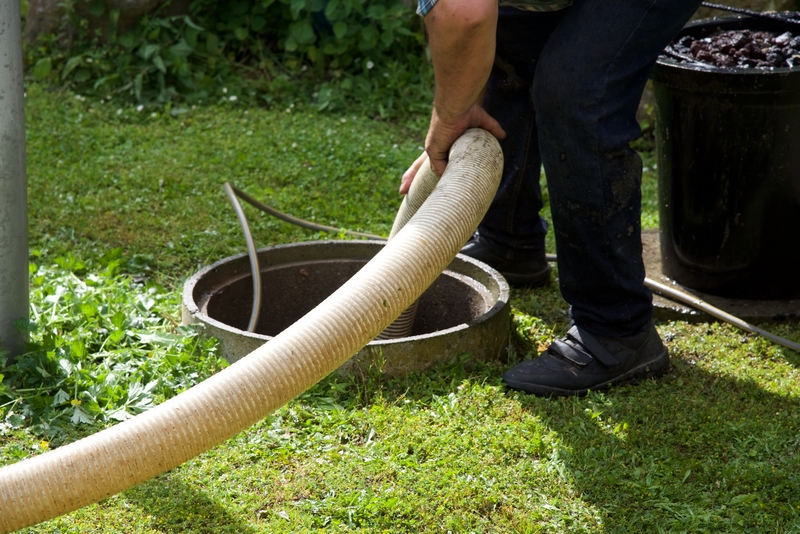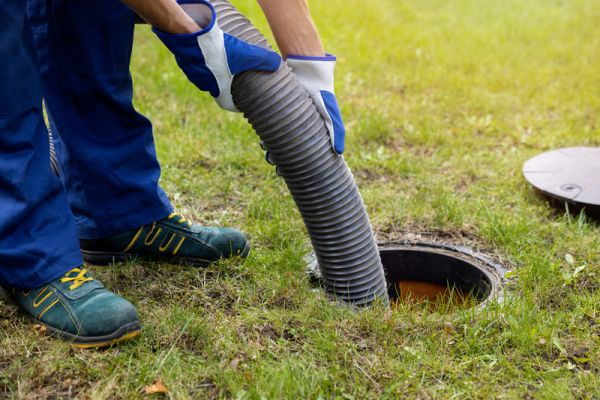In this article
Do Septic Tanks need emptying?
Septic Tanks are a fantastic sewage treatment plant option for your home. Septic tank systems are the unsung heroes that treat your home's wastewater, ensuring a hygienic environment for you and your family. So, when considering the importance and essential work that they do for your drainage field system - it's important to know how to look after them.
We will take a look at the significance of septic tanks in managing household wastewater and delve into the central question of whether regular septic tank emptying is a necessity for these integral systems.
How do Septic Tanks Function?
To best understand how to care for a septic tank, you need to understand how it works. Let's examine the anatomy of these tanks and determine how they work as sewage treatment plants.
Septic tanks are essential components of household wastewater management systems, designed to efficiently treat and dispose of sewage in areas without access to municipal sewer lines. These underground structures consist of two main chambers that work in tandem to facilitate the treatment process.
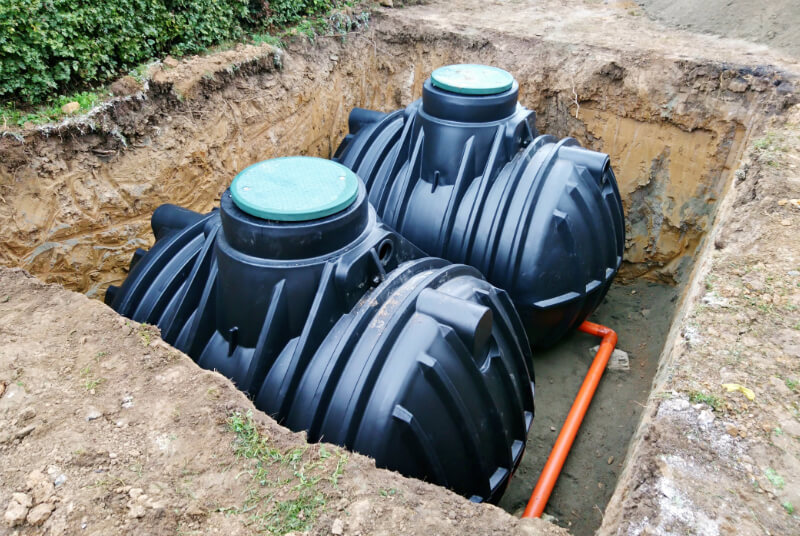
Solid Waste Settlement
Upon entering the septic tank, the wastewater undergoes a separation process where solid waste settles at the bottom of the tank. This accumulation forms a layer of sludge, which must be periodically removed through pumping to prevent system clogs and backups.
Bacteria Breakdown
Within the septic tank, naturally occurring bacteria aid in the breakdown of organic matter present in the wastewater. These microorganisms play a crucial role in decomposing and converting solids into simpler substances, contributing to the overall treatment process.
Wastewater Treatment Process
As the wastewater flows through the septic tank, the heavier solids settle at the bottom, while lighter materials, such as oils and grease, float to the top to form a scum layer. The clarified liquid in the middle portion of the tank undergoes further treatment before exiting the tank for dispersion into the drain field.
Key Components of a Septic System
Understanding the intricate anatomy and function of septic tanks, along with the key components that constitute a septic system, is vital for homeowners to grasp the inner workings of these crucial wastewater treatment facilities. Let's take a look at the several essential components that work together to ensure the proper functioning of a septic system:
- Inlet Pipe: Channels wastewater from the house into the septic tank for treatment.
- Outlet Pipe: Transports treated effluent from the septic tank to the drain field for dispersal.
- Baffles: Dividers within the septic tank that prevent the disturbance of settled solids during inflow and outflow.
- Drain Field: A network of underground perforated pipes where treated effluent is dispersed and further filtered by soil.
So, do septic tanks need emptying?
In short - yes, septic tanks do require periodic emptying to ensure they continue to function effectively. Over time, the solid waste that accumulates in the tank can lead to issues if not emptied regularly. As a standard, it's recommended to have septic tanks inspected and pumped out every 3-5 years to maintain proper functionality and prevent potential problems.
Let's take a closer look at septic tank system pumping to see what factors determine the regularity of its maintenance.
Determining the Pumping Schedule
The frequency at which septic tanks should be emptied varies depending on several factors, including household size, water usage, tank capacity, and the presence of a garbage disposal unit. While there is no one-size-fits-all answer, general guidelines can help homeowners estimate when their septic tanks require pumping.
Guidelines for Homeowners
- Household Size: Larger households typically generate more wastewater and solid waste, necessitating more frequent tank emptying.
- Water Usage: High water usage, such as excessive laundry or long showers, can increase the volume of wastewater entering the septic tank, prompting more frequent pump-outs.
- Tank Size: Smaller tanks may require more frequent pumping compared to larger tanks with greater holding capacities.
- Garbage Disposal Use: Using a garbage disposal can introduce additional solid waste into the septic system, potentially accelerating the need for more frequent emptying.
Necessity of Maintenance
With just how intrinsic and fundamental these shallow dig septic tanks are, it's obvious to see how important regular maintenance is. Maintaining a healthy septic tank is essential for the smooth operation of your household's wastewater management system. Regular upkeep not only preserves the functionality of the septic tank but also safeguards your property and the environment from potential issues.
Let's examine how you can best maintain your drainage system to ensure a reliable septic tank for your home.
How to Maintain your Septic tank
1. Schedule a Professional Inspection:
Contact a septic system professional to assess the condition of your septic tank and determine if pumping is necessary.
Importance of Professional Inspections:
While general guidelines are helpful, conducting professional inspections is crucial in determining the optimal maintenance intervals for septic tanks. Certified septic system professionals possess the expertise and tools to assess the condition of the tank, evaluate sludge levels, and recommend appropriate pumping schedules tailored to the specific needs of the system.
Benefits of Professional Inspections:
- Accurate Assessment: Professionals can accurately assess the condition of the septic tank, including the thickness of sludge and scum layers, to determine the urgency of pumping.
- Preventative Maintenance: Regular professional inspections can detect potential issues early, allowing timely interventions to prevent system failures or backups.
- Customised Recommendations: Based on the inspection findings, professionals can provide customised recommendations for maintenance intervals that optimise system performance and longevity.
2. Avoid Flushing Harsh Chemicals:
Refrain from using harsh chemicals or additives that claim to eliminate septic tank odours, as these products can disrupt the balance of bacteria in the tank.
3. Conserve Water:
Implement water conservation practices, such as fixing leaks, spacing out laundry loads, and installing low-flow fixtures, to reduce the load on your septic system.
4. Keep Drain Field Clear:
Avoid parking vehicles or placing heavy objects over the drain field to prevent damage to the pipes and ensure proper effluent dispersal.
Environmental-Friendly Practices:
- Regular Pumping: Schedule routine septic tank pumping to prevent overflows and leaks that could harm the environment.
- Proper Waste Disposal: Avoid disposing of non-biodegradable items, chemicals, or excessive grease down drains to maintain a healthy balance in the septic system.
- Limit Water Usage: Implement water conservation measures to reduce the strain on your septic system and minimise the volume of wastewater entering the tank.
- Effluent Filter Maintenance: Maintain and clean effluent filters regularly to ensure proper flow and filtration of wastewater leaving the tank.
- Landscaping Considerations: Be mindful of the location of your drain field and septic tank when planning landscaping to prevent damage to system components.
Neglecting your Septic Tank
Neglecting septic tank maintenance can lead to a host of detrimental consequences, impacting the system's functionality and the residents' well-being. Some potential repercussions of neglect include:
- System Failures: Failure to pump and empty the septic tank regularly can result in system failures, leading to backups, overflows, and potential damage to the drain field.
- Health Risks: Untreated sewage overflowing from a neglected septic tank poses significant health risks to individuals living on the property, potentially exposing them to harmful pathogens and contaminants.
- Property Damage: Neglected septic tanks can cause structural damage to the property, including damage to plumbing fixtures, foul odours permeating the home, and unsanitary conditions in the vicinity of the tank.
Immediate Action:
- Do not Ignore Warning Signs: Promptly address any signs of a full septic tank to prevent backups, property damage, and environmental contamination.
- Refrain from DIY Solutions: Avoid attempting to pump or empty the septic tank yourself, as this task requires specialised equipment and expertise best left to trained professionals.
Environmental Implications of Neglected Septic Tanks
Neglected septic tanks can have significant environmental repercussions, potentially affecting groundwater quality, soil integrity, and overall ecosystem health. Some of the environmental impacts of a poorly maintained septic system include:
- Groundwater Contamination: Leaking or overflowing septic tanks can contaminate groundwater with harmful pathogens and pollutants, posing risks to human health and aquatic ecosystems.
- Soil Degradation: Excess nutrients from untreated effluent can lead to soil nutrient imbalances, affecting plant growth and potentially harming surrounding vegetation.
- Surface Water Pollution: Runoff from malfunctioning septic systems can introduce contaminants into streams, rivers, and lakes, compromising water quality and aquatic habitats.
Consulting septic system professionals for expert assessments and tailored recommendations can further enhance the efficiency and longevity of septic tanks, safeguarding both property owners and the environment from potential risks associated with neglected maintenance.
Recognising the Signs
To avoid these issues, you need to understand the telltale signs that can signal that your septic tank is due for emptying. Being attuned to these indicators can help homeowners address maintenance needs promptly and prevent potential septic system issues:
- Foul Odors: Persistent foul odours emanating from drains, toilets, or the vicinity of the septic tank may indicate a full tank in need of pumping.
- Slow Drains: If sinks, showers, or toilets drain slower than usual, it could be a sign of a buildup in the septic tank, which is preventing proper drainage.
- Lush Grass Growth: Unusually green and lush patches of grass above the drain field or near the septic tank can suggest excess nutrients from an overflowing or leaking tank.
By adopting the above responsible septic tank maintenance practices, you can mitigate environmental risks, protect water resources, and contribute to the sustainability of your local ecosystems.
Final Thoughts
So, as we can see - it's exceptionally important to empty your septic tank regularly. However, it's just as important to make sure that regular maintenance is maintained to avoid any problems. Timely emptying of your septic tank is crucial for preserving these essential wastewater treatment systems' efficiency, functionality, and environmental sustainability.
By staying informed, proactive, and engaging in responsible maintenance practices, you can safeguard your properties, protect water resources, and contribute to a healthier living environment for yourself and your community.
Cotswold Drainage
Remember, a well-maintained septic system is not just a convenience—it's a commitment to environmental stewardship and the well-being of your home and community. If you would like any more information on domestic sewage tanks, drainage issues, or help with any professional maintenance of your drains, contact us today. Our team of experts are here to get your home where it needs to be.
Get in touch
Contact our friendly and professional team via form, phone or email for any drainage issues you may have.
From blocked drains to septic tank repairs and replacements, we're here to help. We have over 25 years of experience and offer 24/7 emergency callouts.
-
01386 882324
-
WhatsApp
-
This email address is being protected from spambots. You need JavaScript enabled to view it. -
See what our customers think
